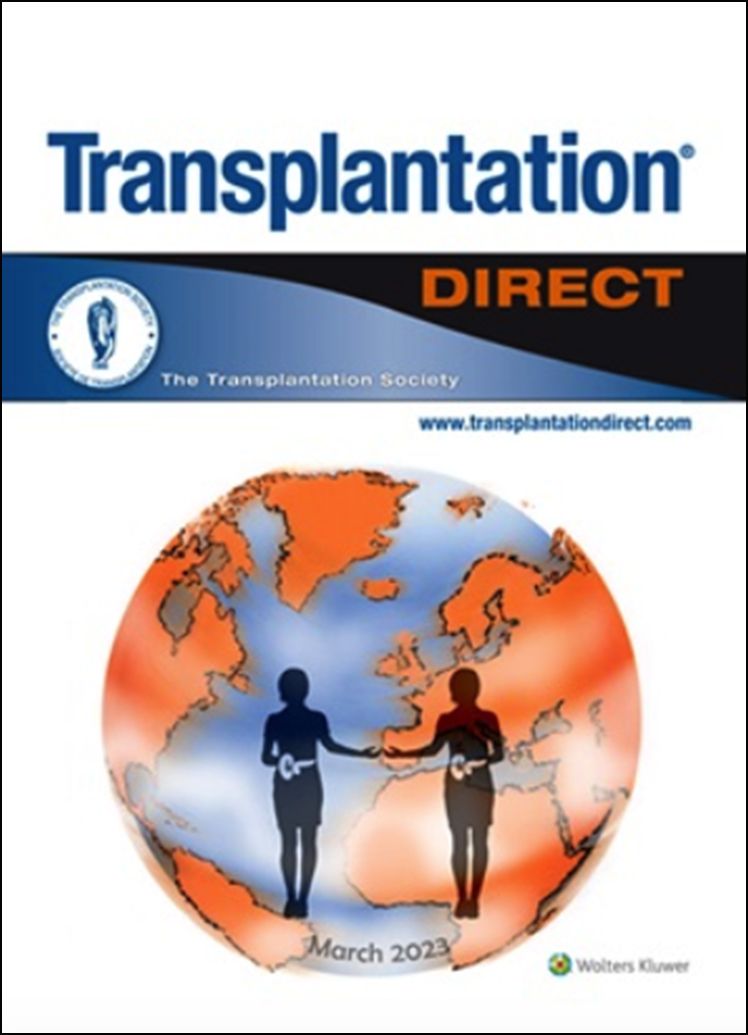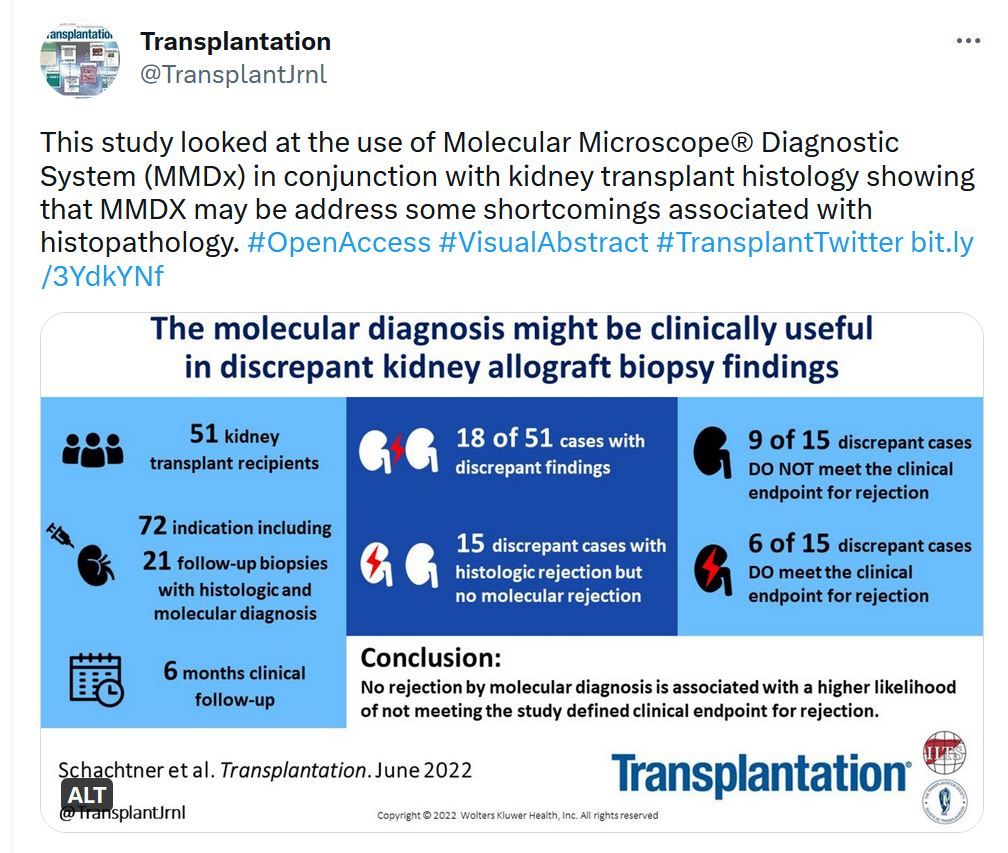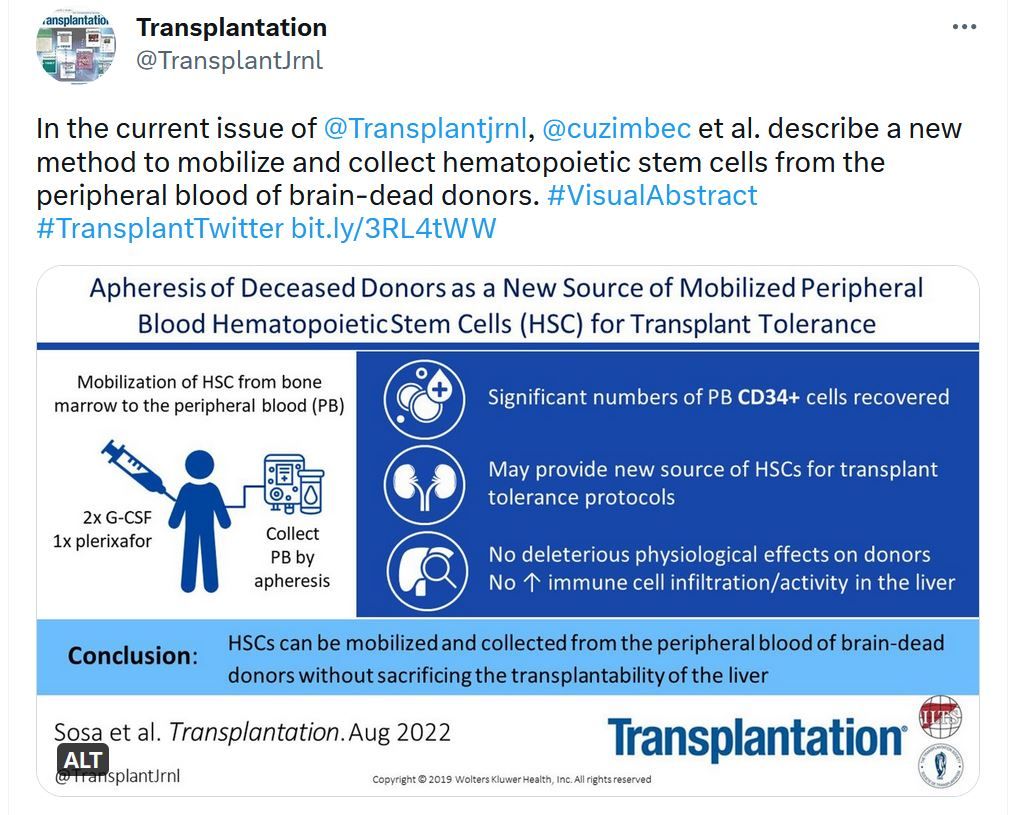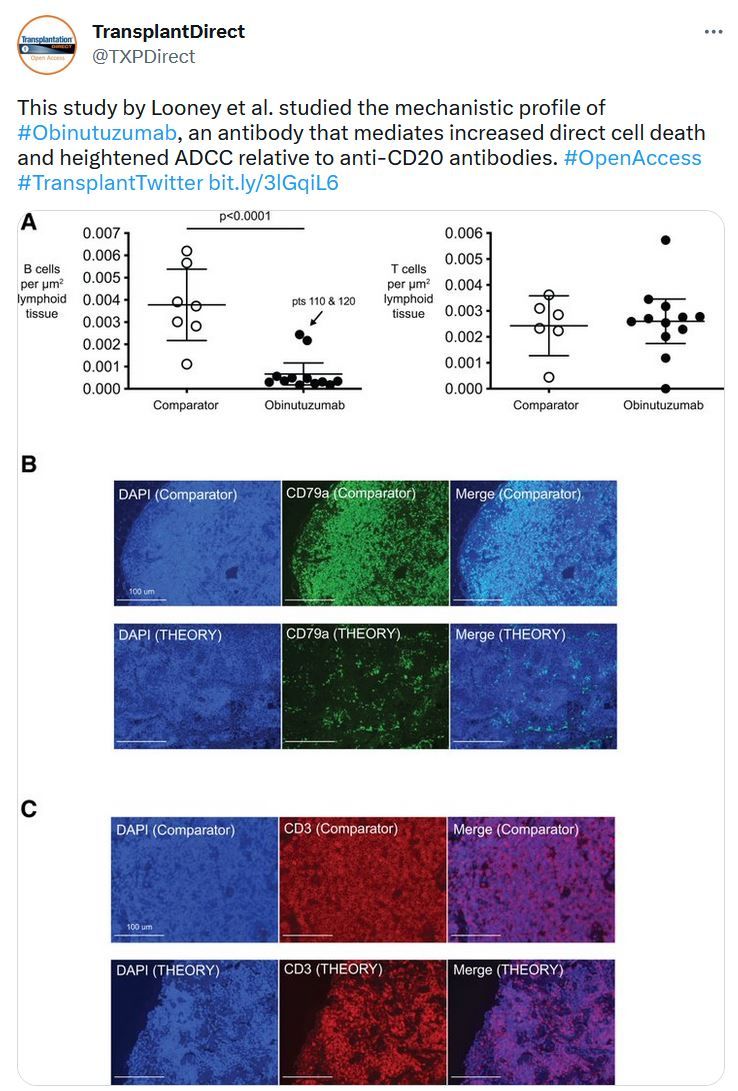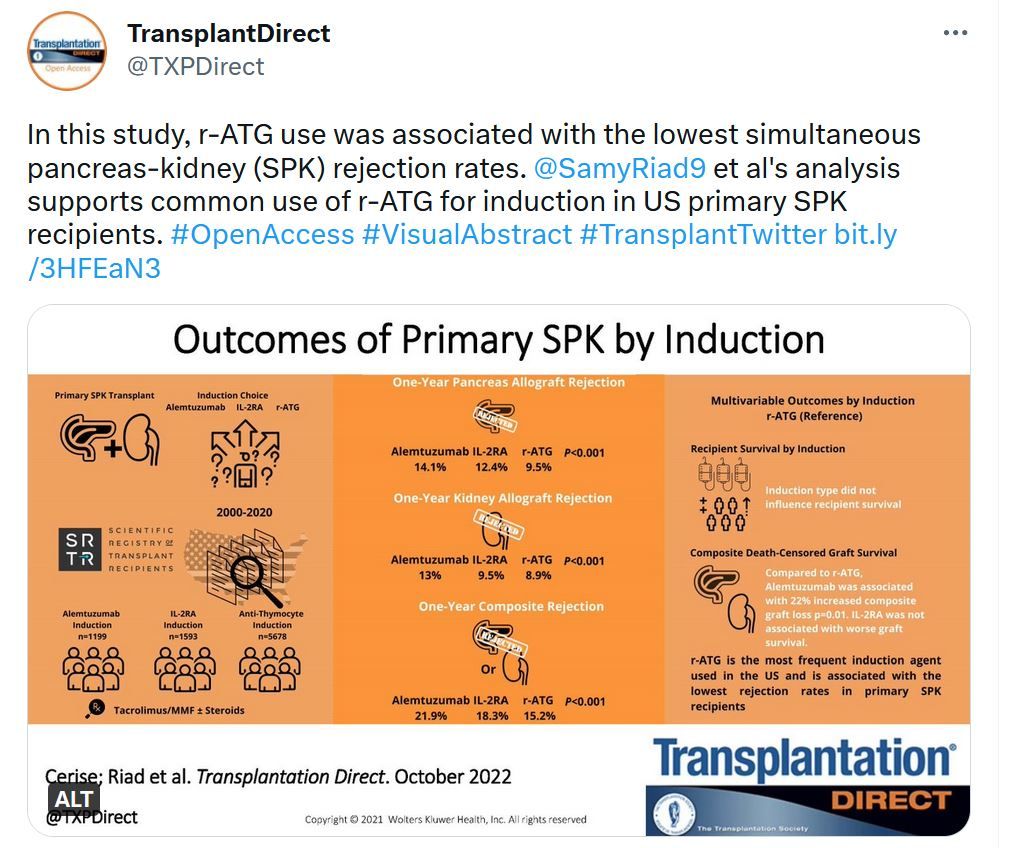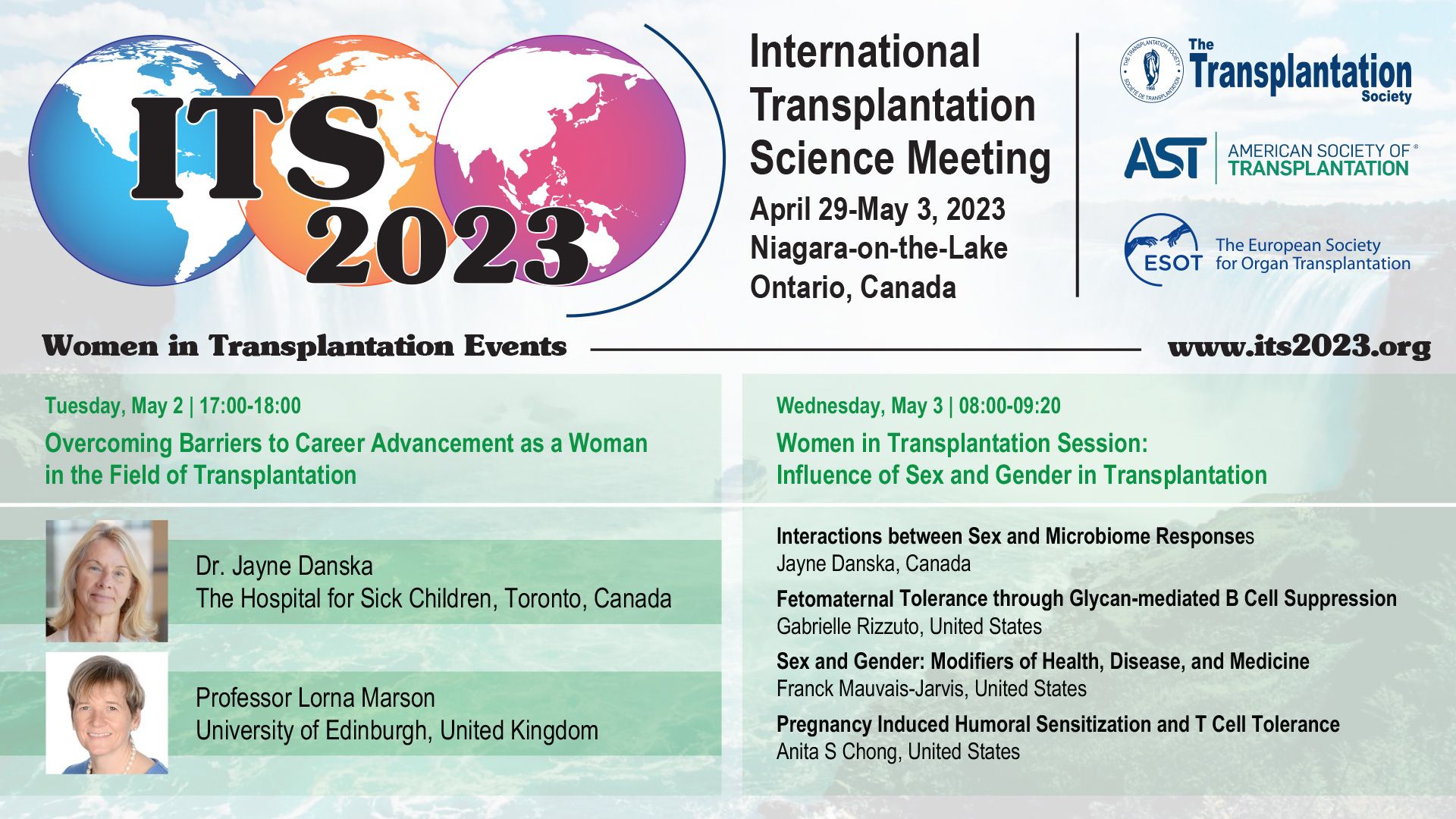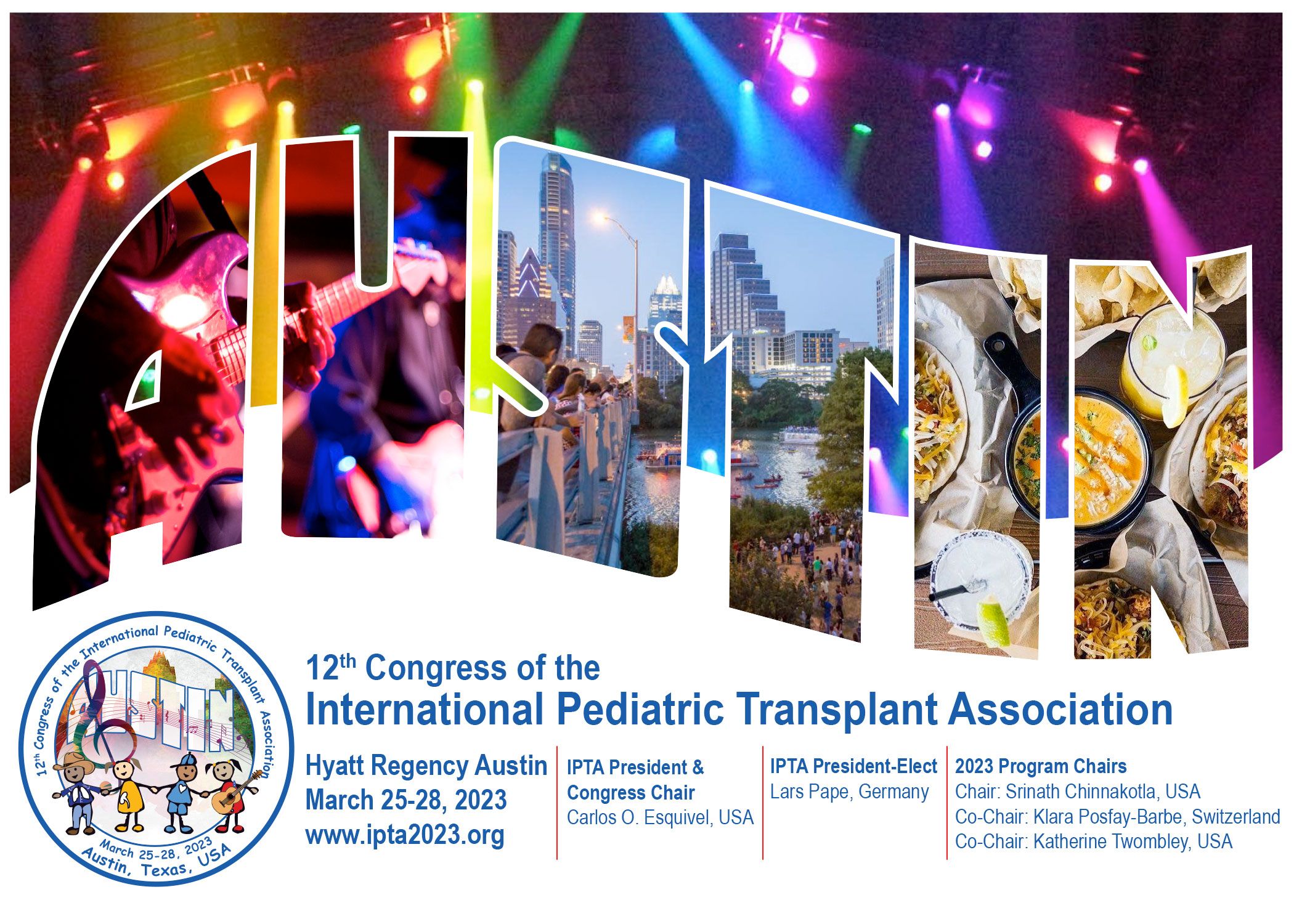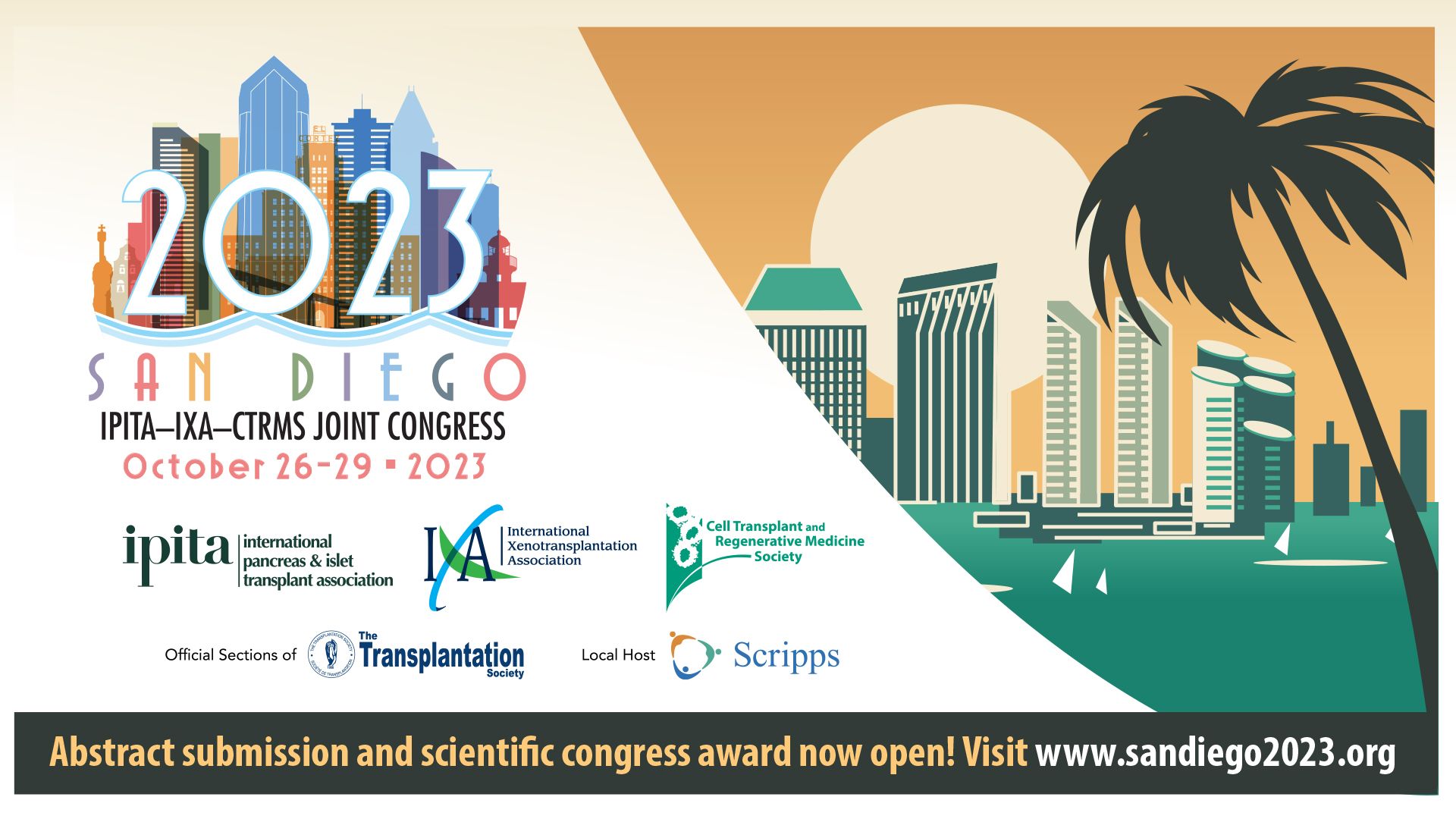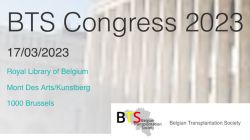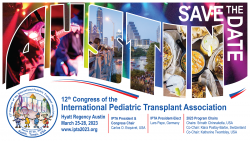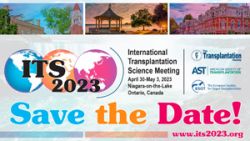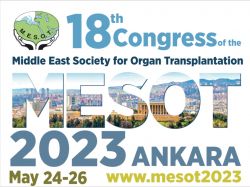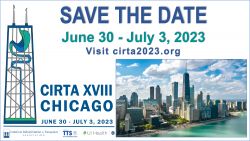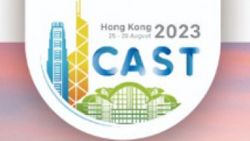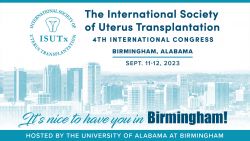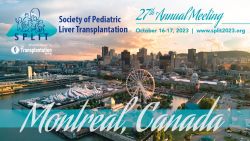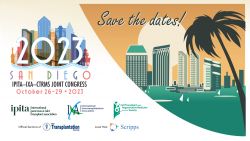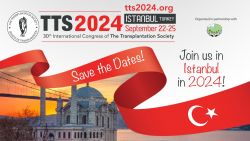
Transplantation Updates

Just Released - Transplantation Direct - March 2023 Issue
The March issue of Transplantation Direct is online and open for everyone. Several articles on immunosuppression in kidney transplantation offer insight on long-term outcomes using prolonged-release tacrolimus, Belatacept dosing every 2 months vs 1 month (an RCT), immunosuppression adherence in Japan, and fasting status and circadian variation with MMF and the glucoronate metabolite. Additionally, there is a report on first-in-human use of a novel thermal barrier bag during kidney transplantation. On the topic of liver transplantation, we have articles on the use of an anticoagulation stratification algorithm and on the role of pretransplant infections in pediatric LDLT recipients. For the cardiologists, a study looks at the influence of tricuspid regurgitation after heart transplantation and another tests ex vivo heart perfusion in the US to push the distance to transplant center boundaries. This issue also features articles on organ donation and procurement, including a first trial of special flushing procedures to reduce bile duct injury, a study estimating acquired blood borne virus infections in donated organs (Australia), utilization and outcomes from normothermic regional perfusion programs using DCD organs, and the role of center-specific factors play into use of COVID+ organs. Also related to the recent COVID outbreak, spread of community-acquired respiratory infections in lung transplant recipients is examined. Not to be left out, an article on busulfan or treosulfan conditioning in older patients is available for our hematopoietic stem cell transplant experts. Many facet of transplantation medicine are covered in this Transplantation Direct issue – please visit our open access site for further details.
Table of Contents
Letter to the Editor
Kidney Transplantation
- Long-term Prolonged-release Tacrolimus-based Immunosuppression in De Novo Kidney Transplant Recipients: 5-Y Prospective Follow-up of Patients in the ADVANCE Study
- Three-year Outcomes After Conversion From Monthly to Every 2-month Belatacept Maintenance Therapy in Kidney Transplant Recipients: Results From a Randomized Controlled Trial
- Reliability and Validity of the Japanese Version of the Basel Assessment of Adherence to Immunosuppressive Medications Scale in Kidney Transplant Recipients
- Impact of Fasting Status and Circadian Variation on the Pharmacokinetics of Mycophenolate Mofetil and the Glucuronide Metabolite in Renal Transplant Recipients
- Protection From Second Warm Ischemic Injury Using a Thermal Barrier Bag in Kidney Transplantation
Liver Transplantation
Heart Transplantation
- Influence of Tricuspid Regurgitation After Heart Transplantation: A Single-center Experience
- Ex Vivo Heart Perfusion for Cardiac Transplantation Allowing for Prolonged Perfusion Time and Extension of Distance Traveled for Procurement of Donor Hearts: An Initial Experience in the United States
Pediatric Transplantation
Bone Marrow and Stem Cell Transplantation
Organ Donation and Procurement
- Does an Additional Bile Duct Flush With Low-viscosity Preservation Solution Reduce Bile Duct Injury? A Single-blinded Randomized Clinical Trial
- Normothermic Regional Perfusion Can Improve Both Utilization and Outcomes in DCD Liver, Kidney, and Pancreas Transplantation
- Recently Acquired Blood-borne Virus Infections in Australian Deceased Organ Donors: Estimation of the Residual Risk of Unexpected Transmission
Infectious Disease
Transplantation - Highlighted Tweets
Transplantation Direct - Highlighted Tweet
Report on earthquake that hit Turkey and Syria

Upcoming Meeting Announcements
Contact
Address
The Transplantation Society
International Headquarters
740 Notre-Dame Ouest
Suite 1245
Montréal, QC, H3C 3X6
Canada
Используйте Вавада казино для игры с бонусом — активируйте промокод и начните выигрывать уже сегодня!

